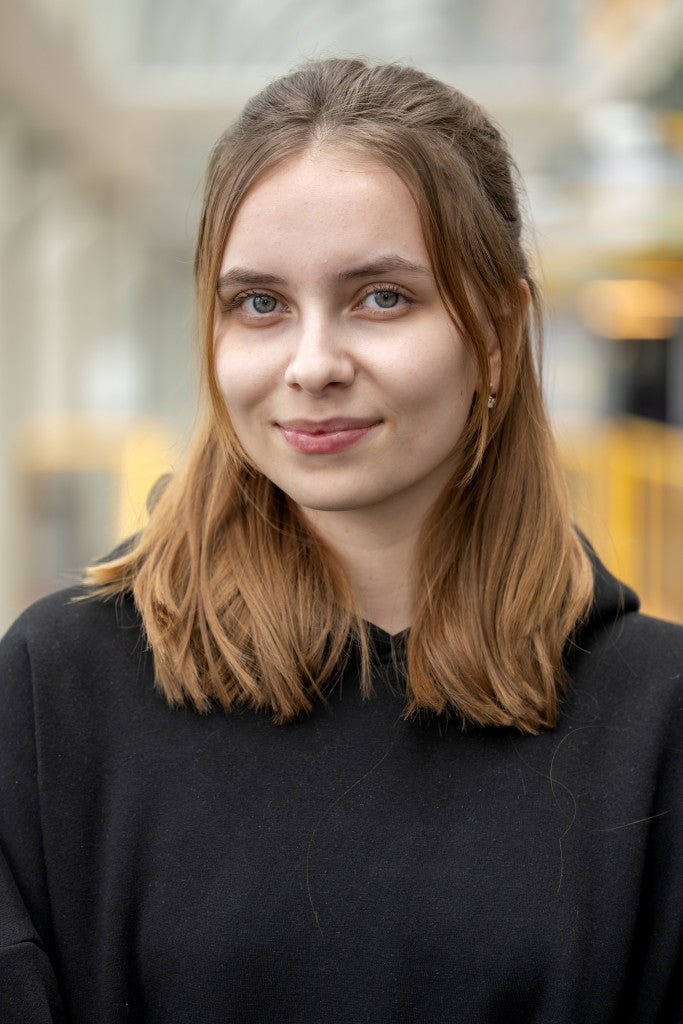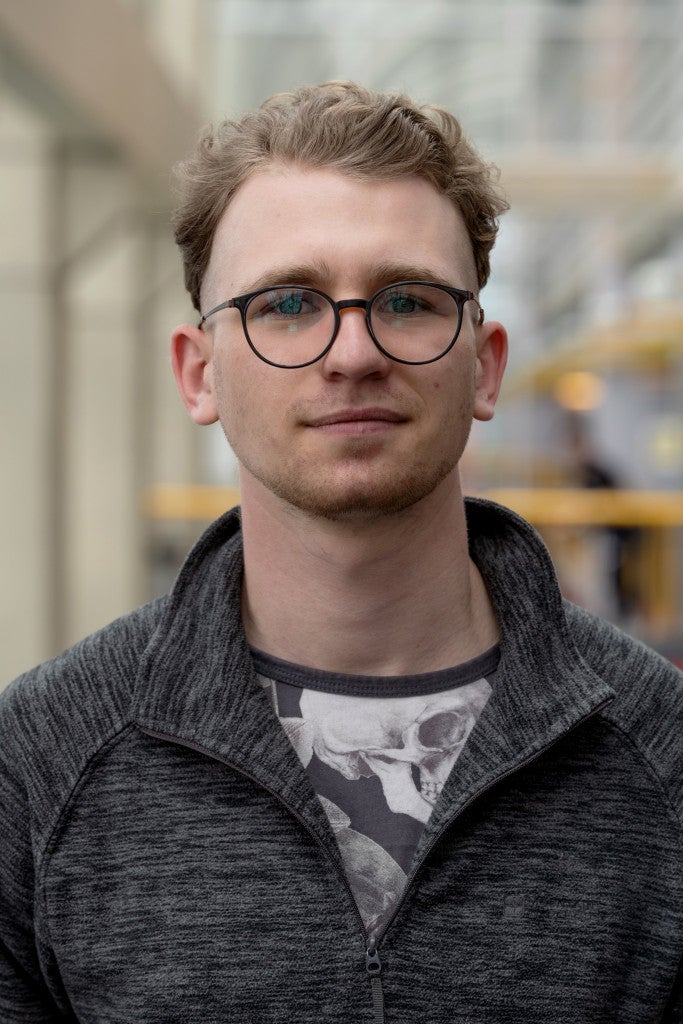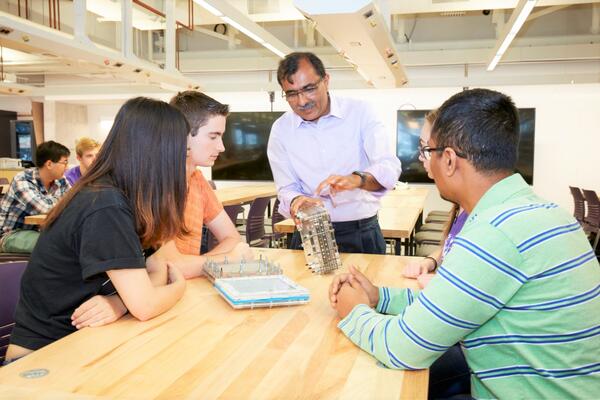
Disrupted by war
Ukrainian students join Waterloo to continue their studies through the Ukrainian Academic Internship program

Ukrainian students join Waterloo to continue their studies through the Ukrainian Academic Internship program
By Carol Truemner Faculty of Engineering
Karina Sukhina
Karina Sukhina woke up to the sound of the first bomb that landed on Kyiv at five a.m. February 24.
While at first uncertain about what she’d heard, Sukhina and her boyfriend Nazarii Kulyk were soon packing their bags and heading for safety.
“It was an awful time,” she says. “I can’t stop thinking about the morning Kyiv was bombed. We were so stressed for the next couple of weeks.”
Days later, the master’s student in computer science at Taras Shevchenko National University of Kyiv and Kulyk, also a master’s student studying at National Pedagogical Dragomanov University, fled Ukraine for Poland.
A short time afterward, they both received offers to join the University of Waterloo’s Ukrainian Academic Internship program this spring. Delighted at the prospect of continuing their education that had been disrupted by war, they arrived on campus with six other Ukrainian students in mid-May.
Supported by a cross-campus collaboration, Waterloo is welcoming a total of 34 Ukrainian students whose studies were interrupted by the ongoing war in their country.
Led by the Waterloo Artificial Intelligence Institute (Waterloo.AI), the internship will cover a variety of academic research, hands-on lab tours and workshops with a focus on artificial intelligence. Supplementary classes in English as a Second Language are being delivered by Renison University College.
Funded by numerous on-campus sponsors and external corporate supporters such as Manulife, Blackberry, Bank of Montreal and Vector Institute for Artificial Intelligence, the internship, provided at no cost to the Ukrainian students, includes in-person academic activities, on-campus accommodation and meals at St. Paul’s University College, and travel costs.
Planning for the internship began after a couple of Waterloo Engineering professors contacted Mary Wells, dean of the Faculty of Engineering, about the possibility of offering a Ukrainian student program similar to one University of Toronto (U of T) had launched with the Vector Institute.
Building on the U of T and Vector Institute program, Waterloo introduced its initiative in mid-April. Dovetailing on U of T’s list of applicants to its program, Waterloo sent offers to 42 prospective students —approximately half men and women and half undergraduate and graduate students.

Severyn Balaniuk
Waterloo’s internship offer came at just the right time for Severyn Balaniuk.
The fourth-year computer engineering student who was just two months away from completing his degree at the National Ukrainian Technical University in Kyiv escaped Ukraine with his younger brother and mother days after Russia invaded his country.
They ended up in Smoky Lake, a small Alberta town with a strong Ukrainian community that is helping support Balaniuk’s family.
Balaniuk's father remains in Kyiv after joining a local militia group to defend the city from Russian attacks. He continues to keep his family updated from Ukraine's capital on the war in their country.
For years while living in Kyiv, Balaniuk watched YouTube videos featuring Waterloo’s Mike & Ophelia Lazaridis Quantum-Nano Centre and said it’s an “unbelievable opportunity” that has brought him to the University.
“I’ve researched a lot of quantum computing institutes in Canada and the United States and every time I looked Waterloo’s was the top result,” he says. “I had a tour of it the other day and found it amazing.”
Sukhina and Kulyk keep in touch daily with their families who are still in Ukraine.
“They’re OK for now,” she says. “Our hope is that the worst has happened in the country.”
While Sukhina is still finding her way around the University and meeting new people, she was quickly introduced to a regular and often unwelcome visitor to the campus — the Canada Goose.
“When we woke up the first morning, we were really surprised to hear them on the roof of our building,” she says. “But now we’re OK with them — we have local birds like that in Ukraine.”
The University has launched a fund to support students whose education has been impacted by war or conflict with the Ukrainian students as the immediate beneficiaries. Please consider donating to the Students At-Risk Fund.
Students in the banner photo from left to right: Stepan Boiko, Viktoriia Trostsinska, Oleksandra Kmet, Antonina Rudakova, Severyn Balaniuk, Vladyslav Yusiuk, Nazarii Kulyk and Karina Sukhina

Read more
Varma family donates $1 million for professorship six decades after Waterloo gamble paid off

Read more
Students credit success in national competition to immersive learning experience

Read more
Sanjeev Bedi, founding director of the IDEAs clinic at Waterloo, honoured by Engineers Canada
The University of Waterloo acknowledges that much of our work takes place on the traditional territory of the Neutral, Anishinaabeg, and Haudenosaunee peoples. Our main campus is situated on the Haldimand Tract, the land granted to the Six Nations that includes six miles on each side of the Grand River. Our active work toward reconciliation takes place across our campuses through research, learning, teaching, and community building, and is co-ordinated within the Office of Indigenous Relations.